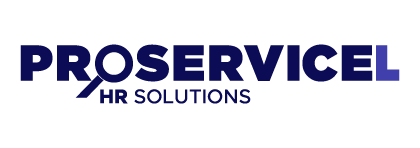Resume: What, Why and How?
The main forms of autobiography are CV (Latin term Curriculum Vitae) and its concise version Resume.
Resume/CV is an extremely important and powerful tool, since the employer not only receives information about the applicant but may also form certain opinion about the latter. Sometimes irrelevant format of the resume/CV negatively affects the status of the qualified applicant, depriving the latter of the opportunity to participate in further stages of selection. Employer may form a preconceived opinion or attitude about the applicant based on it.
Here are the most common pitfalls or mistakes:
Length
The most important rule is to keep it as concise as possible. The number of job-seekers is almost always great, and employers do not have much desire and time to study extensive resumes. Of course, there are no set restrictions on the number of pages, but it is recommended to keep the resume under 3 pages at the most.
Education
Indicate the graduation date, diploma you have received, and the title or degree (master, bachelor, specialist, etc.). If you have vocational or higher education, there is no need to specify the high school, unless it is a specialized school, such as “Physics and Mathematics Specialized School after A.Shahinyan “, etc. Another common mistake is to indicate both education and participation in various training courses in the same section of the resume.
Work Experience
You can often see long and detailed description of duties and responsibilities in resumes. Is it relevant to do so?
Generally, HR specialists recommend to focus not on detailing the responsibilities, but rather on defining the outcomes of certain activities they have performed, such as “developed legal documentations for more than 10 business partnerships” or “initiated and implemented a 10-month volunteer program as a result of which the area along the entire River X has been cleaned”.
However, if you find it difficult to determine the final outcome or results, and important action or component towards achieving it, it would be better to group responsibilities by their category. For example, if you have answered customers’ phone calls, provided customers with information and guidance, sold products and regularly informed your Supervisor about these activities in writing or verbally, you’d better state “performed customer service functions” specifying one or two main responsibilities in parentheses instead of indicating all these activities one by one.
It’s a common mistake to represent the responsibility as a function, for example, “ensure the normal course of the project implementation” or “ensure the normal work of the office”. It is very generalized and not clear what exactly the applicant means by ensuring the normal course and how the normal course of work has been ensured.
What to do if one has no previous work experience?
Often job-seekers, especially fresh graduates, do not have relevant work experience. This, of course, is a complicated issue. So I would recommend doing volunteer work while a student.
Volunteer work experience testifies to your diligence. You can benefit a lot from it, gain experience and, most importantly, you will significantly improve your status and have a comparative advantage over others.
Training/Professional Development
In this section it is important to indicate the following: dates, title, organization conducting the training, as well as the organization sponsoring the training, such as outstanding international organizations. Certificates as well as relevant qualification, if any received during the training, should be listed. For example, if you have participated in employee development trainings in your previous company, the name of the company or the project should be indicated. Often a short seminar within the organization is represented as a training, so it is also desirable to specify the type of the training, e.g. seminar, workshop, etc.
Try not to confuse qualities, skills, abilities and qualifications.
Applicants eagerly identify their personal qualities, such as diligence, dedication, etc., combining them with skills or sometimes even with qualifications.
A capacity that has officially been recognized by a special professional board or institution, may be specified as a qualification. For example, ability to provide “first aid” is considered a qualification if it has been obtained through relevant professional training, whereas “excellent communication and interpersonal” skills is not a qualification, but rather skills that the applicant thinks he masters, which, however, needs be proved yet. Knowledge of various programming languages may be considered qualification.
Photos, Hobbies/Interests and Other Personal Information
Many people prefer to attach their photos in order to create a better impression at the visual level, as well as point out their interests, such as “breeding aquarium fish” or “mountain climbing” (perhaps to make a more vivid impression on employers). There are no restrictions on indicating all these, but it is up to you to decide whether or not it is appropriate to do so.
Avoid exaggerated self-esteem.
Apparently applicants always want to point out their best qualities in the resume as it provides an exclusive opportunity to inform the employer about them. In addition to this, over the past few years, influenced by a Western trend, some job-seekers tend to present themselves as extremely self-confident candidates, specialists and create an image of an optimistic person (“a positive person”). In this regard, I would recommend to show some delicacy. No matter how professional you consider yourself to be, you should not openly mention about that. You may simply state that you have significant experience and skills in this or that area, and the qualifications you have received as well as the accomplishments you have already mentioned are enough to convey the message of your high professional qualifications.
As to personal qualities, many job-seekers just praise themselves when applying for a job. Just don’t forget that your personal opinion about yourself may vary from that of others. You can tell about your merits and qualities as well as provide evidence or proof at later stages of selection and recruitment.
Lilit Hakobyan, Founding Director of ProService LLC, www.proservice-l.com, @proservice-l

